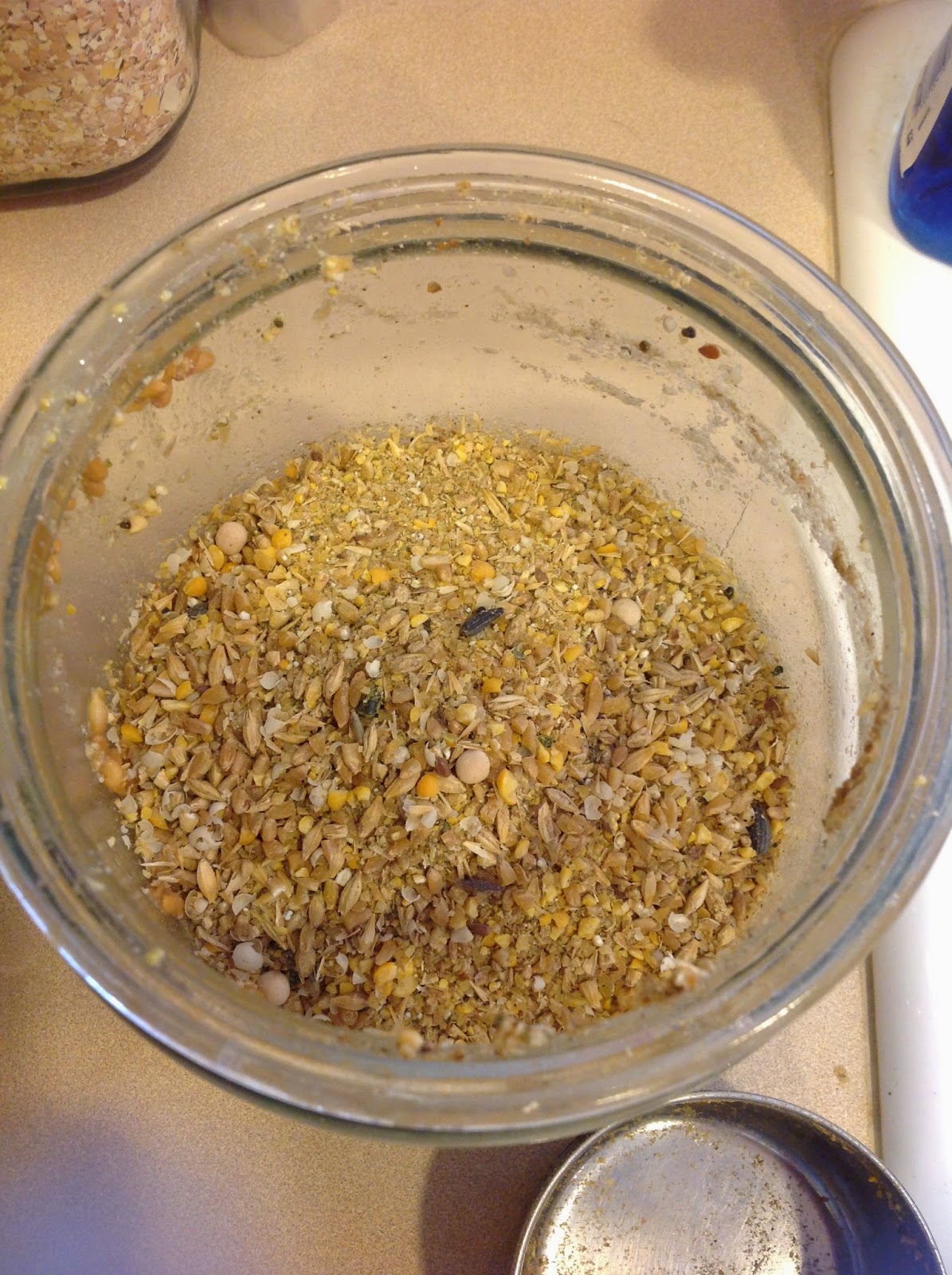The only alternative is to feed them the full amount that is currently in the jar before we leave, which could be several days worth. It wont go to waste because they will just eat it and not their dry feed in these instances, but it just seems wasteful to me. When we are away (and aren't taking the chickens with us) we have a friend chicken-sit for us, but I cannot expect her to monitor my fermented feed for me...you develop a feel for how to maintain it, so it's just too much to ask someone unfamiliar with it to step in and do it.
Over time I have learned exactly how much feed it takes each day to feed my 17 hens (fermented feed is about half of their primary food, they also have dry feed available), so now I ferment my feed on a scaled down basis, meaning I only have on hand what will be needed for one day. This 'mini-scale' version works very well for us, and it would work for those of you who don't have a large flock and don't want to have a full-scale fermenting operation in your kitchen.
So instead of my previous set up where I used a huge 3-1/2 gallon jar on my counter (or the two bucket system I occasionally used outdoors during cool months) that I added more feed and water to each day after I scooped out their morning meal, now I just keep a 2 gallon jar by my kitchen sink.
Each morning I reserve most of the liquid from the fermented jar when dumping the contents of fermented feed into my draining tray.
Then I pour the fermented liquid back into the jar with what ever little bits that remained in the jar after pouring it out. I don't wash it out, because what ever is left in the jar, along with the reserved liquid, and this jump-starts the fermenting process for the new day.
Then I add the measured amount of dry feed needed for the next day. It's the same quantity of dry feed (4 cups) but it can be a varied mix depending on what the 'girls' needs are. For example, during molting season I add 1 cup of higher protein food like wheat berries or split peas, and during the cold months I will mix in some scratch corn to warm them up.
I then add about 5-6 cups of water. Once stirred and allowed to settle, there should be at least 2" of liquid above my dry mix. This allows space for swelling while still remaining covered by liquid.
I usually give it a gentle stir again in the evening, and add a little water if needed at that time to maintain at least an inch of water above the feed level. And that's it. So if I have to be away the next day I just don't mix a new batch for the next day. When I return home I will start a new batch. It takes a couple of days for the the true fermenting process to begin again from fresh, but the girls enjoy the wet feed during that time. Once the fermenting process is going, it stays good by just adding the liquid retained from the batch I am serving, plus the little bits left in the jar when I pour it out each morning. Since I am reusing the liquid, my mini-scale version is really no different then when you are fermenting in a big jar and keep adding more feed and water to jar each day to keep it going.
I can also bring my small jar with, and use this mini-scale version when we are traveling with our chickens, so they get fermented feed even when they are away from home. If you have just a few chickens, don't feel that you need to have a huge operation to provide your chickens with the benefits of fermented feed, try making your own mini-scale version of fermented feed.
Keeper of 1 husband, 3 dogs,
3 cats, and 17 Chickens!






